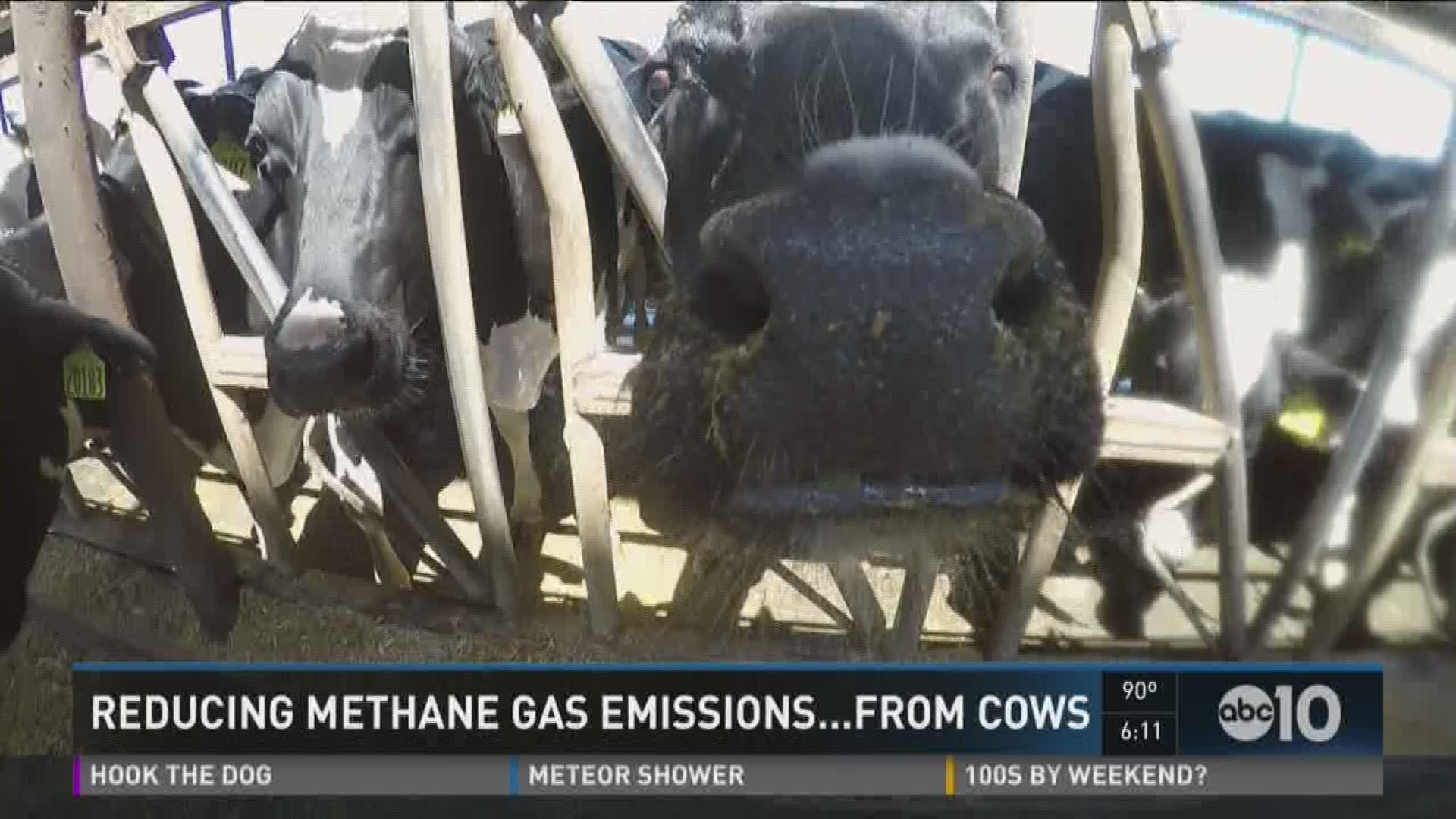Everyone poops – and burps and farts. When cows do it, though, it’s a problem, and California is looking for cows to cut back.
A proposed strategy from the California Air Resources Board seeks to reduce methane emissions from the dairy industry by more than 40 percent by 2030. The dairy and livestock industry creates half of California’s methane emissions. Breaking it down further, half of those emissions come from cows’ belching and passing gas, while the other half comes from manure management.
Two California senate bills moving through the legislature would require the Air Resources Board to start putting in place strategies to achieve this reduction in methane and other greenhouse gases. But many dairy producers are pushing back, arguing that the mandated reductions would be unachievable.
“I don’t know how we get around the natural behaviors of cows. Cows burping and passing gas are a natural part of what cows do. We’re willing to investigate, but we’d need help from people to figure that out,” dairy producer Devin Gioletti said. Gioletti is a third-generation dairy producer in Turlock.
Reducing methane emissions related to manure management is more straightforward. One of the strategies the Air Resources Board recommends is investing in a dairy digester, which captures the methane emitted from manure and turns it into usable energy. Digesters, however, don’t come cheap.
“We got quoted by a guy who builds dairy digesters, and he quoted us $5 to $6 million to build one. That’s worth more than our entire farm,” Gioletti said.
Air Resources Board police advisor Ryan McCarthy told ABC10 News the state needs to put a framework in place in terms of incentives and policies to help dairy producers adapt to the new manure management strategies. But Gioletti does not feel supported by the state agency.
“Sometimes we feel like our representatives in Sacramento don’t value our contribution to the economy or our neighbors, and our environment in our piece of California here,” Gioletti said.
The Western United Dairymen, the lobbying group Gioletti belongs to, has already spent $116,000 fighting these policies. Executive director Anja Radabaugh says the policy should not be codified unless it can reasonably be achieved.
“I’d really rather not play poker without a strategy,” Radabaugh said. “Any kind of legislation that is passed needs to be done in conjunction with lots of industry input, instead of flat-out mandating that cows not pass wind.”

